GSV Emeritus India Summit 2023: Top 3 Takeaways and Trends
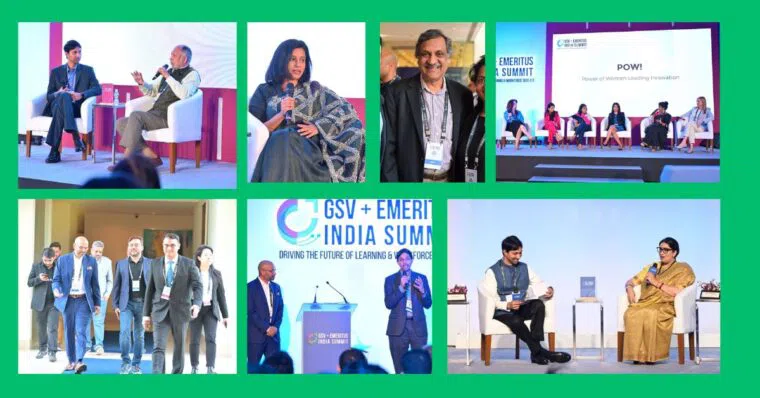
“The gift in life is to have a learner’s mindset and be curious,” said Lisa Marsh Ryerson, University Provost, Southern New Hampshire University, addressing a rapt audience in Gurgaon, India. The audience comprised the best and brightest of edtech: thinkers, leaders, and innovators. And they had all come together to attend the GSV Emeritus India Summit, a 3-day event entailing fireside chats, panel discussions, and interactions that would determine the future of edtech.
The event was titled All Eyes on India: Driving the Future of Learning, and all eyes indeed did veer toward India from the 20th to the 22nd of February, 2023, as edtech leaders and stakeholders discussed challenges, opportunities, and the future path of this industry. If you missed the updates on the event, here is a curated experience of everything note-worthy that transpired at the GSV Emeritus India Summit.
The Workforce of the Future: Upskilling, a Shared Responsibility
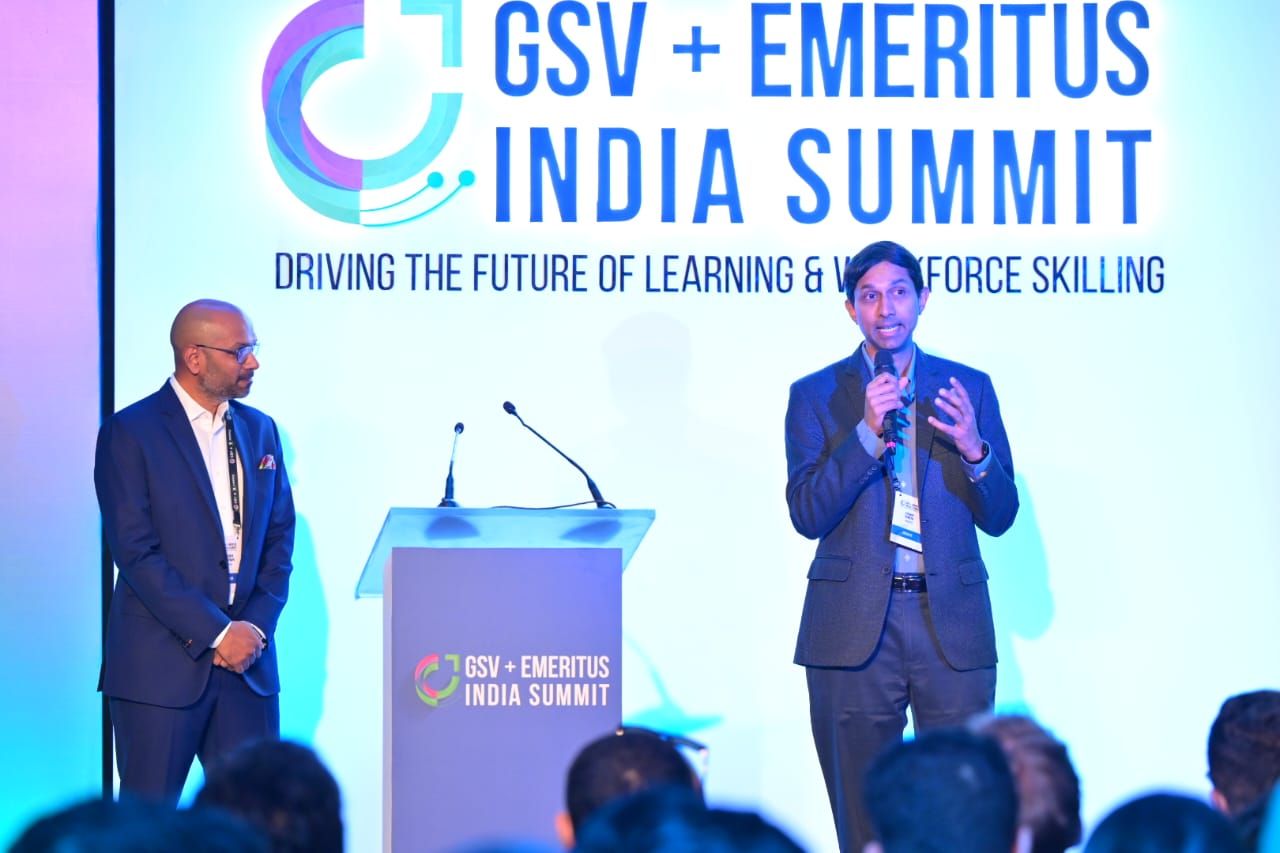 The narrative at the GSV Emeritus India Summit 2023 circled the debate on deep skilling vs. learning new skills. Many of the edtech leaders and experts on panels pointed to the growing strength of the workforce in terms of numbers and the resulting skill gap. Skill gaps are widening as skills become redundant within four to five years in a digital world. The summit acknowledged that skilling or learning needed to focus on the outcome of employability.
The narrative at the GSV Emeritus India Summit 2023 circled the debate on deep skilling vs. learning new skills. Many of the edtech leaders and experts on panels pointed to the growing strength of the workforce in terms of numbers and the resulting skill gap. Skill gaps are widening as skills become redundant within four to five years in a digital world. The summit acknowledged that skilling or learning needed to focus on the outcome of employability.
Jawahir Morarji, Managing Director, Enterprise Emeritus, spoke at length about how lifelong learning needs to become the norm for professionals to stay relevant. “Over time, people learn to adapt, learn new skills, and transform their careers. If people stop learning, they fall behind,” he observed. Morarji also spoke about how employers or organizations played a part in shaping the future workforce. He said, “Organisations need to give people the opportunity to level up, especially those who’ve been around and helped to build companies. Give them a seat at the table.”
TC Haldi, Senior Director at MIT, also discussed the urgency of upskilling professionals already in the workforce. “We will have to upskill one in every five people in the next few years. We have seen a huge demand for upskilling for front to mid-level managers,” she predicted. So it would be fair to say that skilling as a business will need to scale up if a growing workforce’s demand must be met.
Haldi also added that leaders and C-suite executives voluntarily sought out upskilling programs. She added, “Post-COVID, we’ve seen much interest in C-suite level programs, and that’s been a big change. ”
India’s Special Place in the Edtech Universe
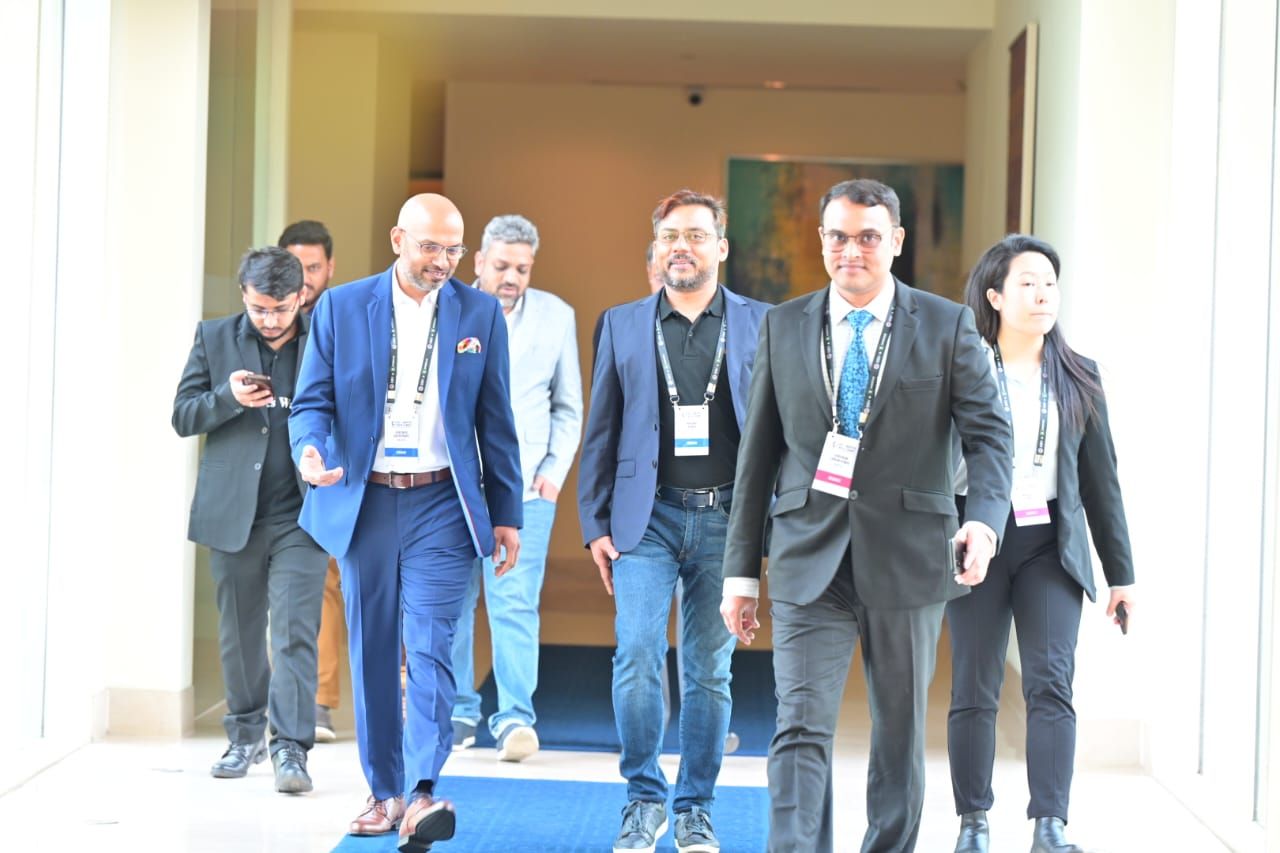 Much of the GSV Emeritus India Summit 2023 focused on the opportunities and challenges that Indian edtech players had within the subcontinent and on a global stage. Many factors contributed to India’s unique place in the edtech space, and they were rightly pointed out as follows:
Much of the GSV Emeritus India Summit 2023 focused on the opportunities and challenges that Indian edtech players had within the subcontinent and on a global stage. Many factors contributed to India’s unique place in the edtech space, and they were rightly pointed out as follows:
A Growing Population of Young People Who are Potential Learners
GSV Founder Michael Moe drew the summit’s attention to the fact India had a population of 600 million youth, and this was a ready market for edtech players. Anant Agarwal, Chief Platform Officer of 2U and Founder of edX, backed this. He said, “India has an incredible and insatiable demand (for education).”
Further, Chaitanya Kalipatnapu, Co-founder of Emeritus, pointed out that it was impossible to build brick-and-mortar institutions for all these learners at pace. Hence, online learning is the way to go in the future.
A B2C Model for Education in India
Unlike countries like China, where education is a highly regulated industry, education can be a direct-to-consumer service in India. Hence, edtech players can move faster without navigating a thick layer of regulations and compliances. Sandeep Singhal, Managing Partner, GSV Ventures, addressed this advantage at the summit. He said, “In 10 years, we will have some education-focused public companies. Unlike other markets where the government plays a huge role, in India, private companies will solve it. However, my advice is, don’t hurry; wait to be profitable before going public.”
Rise of Indian Edtech MNCs and a New Brand of Education
Essentially, adult learners worldwide have similar requirements. This means that Indian edtech players have two sets of opportunities: a huge population of native English speakers and the ability to serve an English-speaking learner base across various geographies efficiently. And as far as the price point is concerned, Indian players have an obvious advantage. After all, they have developed and priced courses for learners with lower buying capacity.
Pranjal Kumar, CFO and Head of Corporate Development, Emeritus, spoke of this advantage. He said, “We have seen that the tools we build in India are also relevant for other markets. 70% of our business comes from the U.S. and Europe. We are in an advantageous position! Fast forward 10 years, and you will see a lot of edtech MNCs out of India.”
The speakers at the summit also believed that, in time, Indian education would become a brand. There is a trend that elevates all things ‘‘hyperlocal’ like a Korean film or an authentic Turkish show. Similarly, India might be known for the education it has to offer to the world in the coming decade. Although Indian universities are yet to be marketed to the world as educational destinations, we can count on the ‘heterogeneity’ of Indian culture to work in its favor.
Getting the Right Skills to the Right People: Technology and Affordability
In the edtech universe, technology and education are equal partners. Edtech players aim to get the skills to the people who need them. And technology is the medium that facilitates this. However, the third aspect of this equation is affordability. As Madan Pillutla, the Dean of ISB, rightly said, “World over, the biggest challenge is that higher education has been out of reach for a lot of people who need it and deserve it.”
Hence, one of the widely discussed topics at the GSV Emeritus India Summit was making quality education accessible and affordable for those who need it.
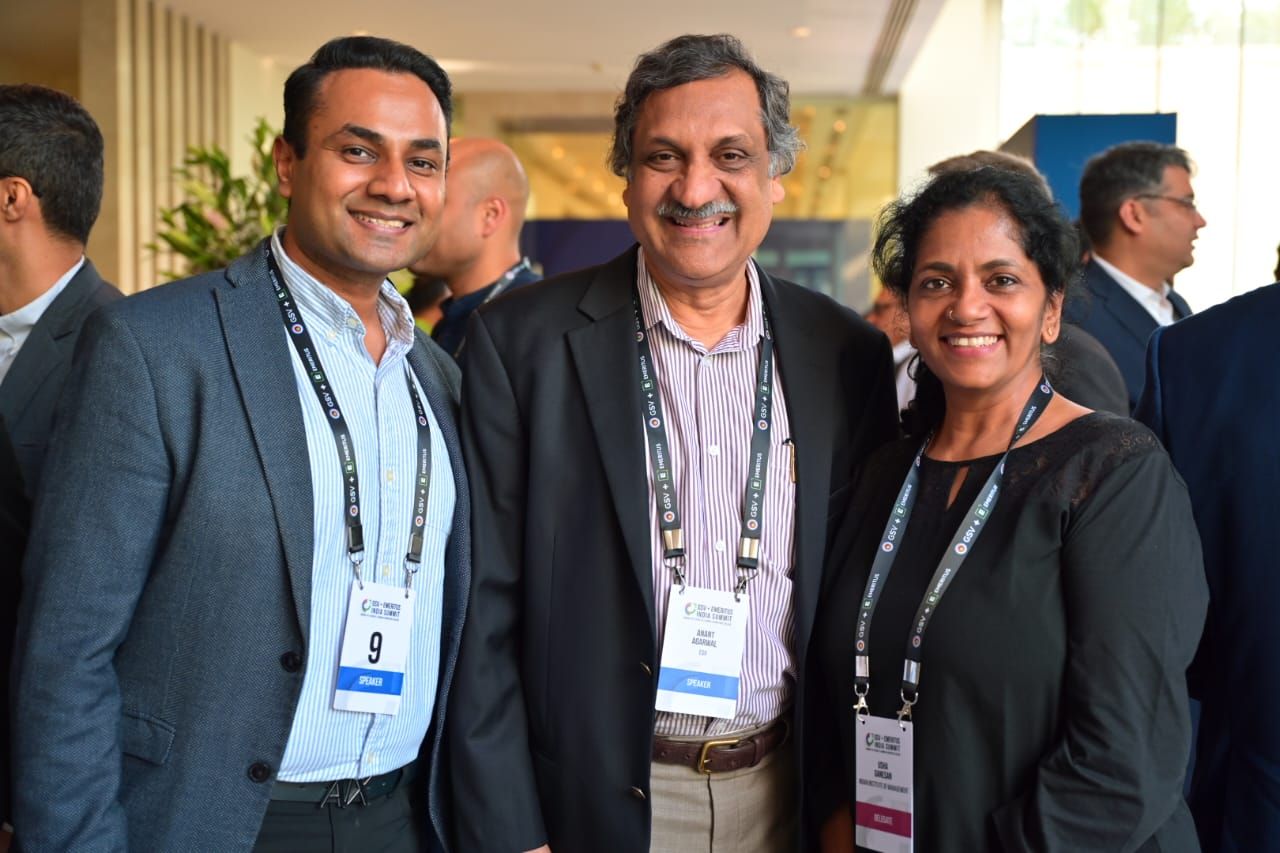 The LEGO Model of Education
The LEGO Model of Education
Anant Agarwal had an ingenious idea to resolve the debate of affordability and access. “Currently, the education system is like an ivory tower, a monolithic system. Learners enter at the bottom, and the only way to come out is at the top,” he explained. The people who do not reach the top are often termed ‘drop-outs’; they get neither credit nor credentials for their time in this ivory tower.
As a counter to this monolithic system, Agarwal proposed the LEGO system. “We can have a tower built with LEGO blocks. Each block can be a micro degree/certification with micro-credentials,” he suggested. This allows learners to learn at their own pace and edtech players to reach more learners.
Business Models Built to Last and Reach the Farthest
A veteran in the field of edtech in India, Rajendra Pawar, Chairman and Co-founder of NIIT Limited, attended this event and made a very pertinent point about the business of education. “Are you building to sell or building to last? It’s a personal choice. But, if you are building to last, then education is the space for you,” he opined. In essence, the long-term impact should be the focus of business models in this space.
As the GSV Emeritus Summit was focused on India, the challenge of reaching Tier-2 and 3 cities that do not have high internet penetration was discussed at length. The verdict was that the approach and the business model to reach these spaces must differ from big metros. Well-known venture capitalist Sajith Pai, Director of Blume Ventures, summed it up as he said, “What got you here won’t take you there.”
3 Trends to Look Forward to in 2023
At events like the GSV Emeritus India Summit that brought together the best and the brightest of the industry, we couldn’t let the experts and leaders walk away without sharing their thoughts about the future. Three distinct trends emerged from what they had to say.
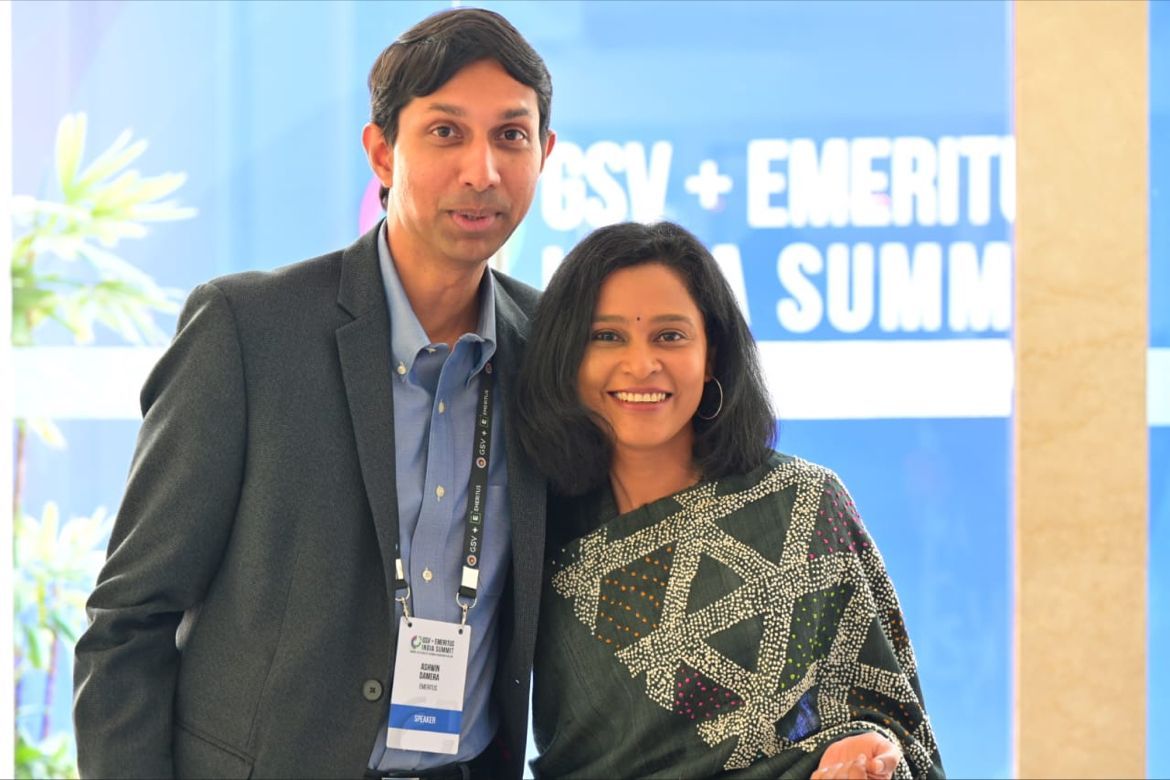 1. Hybrid Education Will be the Next Normal
1. Hybrid Education Will be the Next Normal
Until the pandemic, online learning as a segment was in its nascency. However, within months, it became the primary learning model worldwide. This continued for two years as the world struggled to return to offline avenues. COVID-19 and its aftermath did speed up the adoption of technology. However, technology still hasn’t been able to replace the teacher in the classroom.
What has emerged from the debate is the hybrid model of education. Vivian Wu, Managing Partner, Ventures Chan Zuckerberg Initiative, alluded to this in one of the panel discussions. She said, “What you see now is the potential for bringing personalization. There are hybrid opportunities, and we are taking the best out of each medium (online and offline) to create access and scale.”
“The distinction between online and offline is very prominent right now. This distinction will become less obvious over time. It’ll come down to what kind of outcomes we deliver or what kind of service we offer.” Abhishek Maheshwari, CEO of Aakash Educational Services, discussed this further. “The distinction between online and offline is very prominent right now. This distinction will become less obvious over time. It’ll come down to what kind of outcomes we are delivering or what kind of service we are offering,” he stated.
2. 2023 is the Year of ChatGPT
The whole world is talking about this brilliant piece of AI, and there was no escaping it, even at the GSV Emeritus India Summit. Mike Malefakis, President of University Partners at Emeritus, forecasted that 2023 would be called the year of ChatGPT. Like the conversation around the metaverse and AR/VR dominated 2022, this year will explore the possibilities ChatGPT has opened up.
“Some of the smartest people in the world are already using ChatGPT to become more effective. As executives and learners, we should embrace and use it productively. “Don’t be afraid of ChatGPT; harness it,” he said.
3. Immersive Tech and AR Will Change the Edtech Landscape
Sandhya Devanathan, Vice President, Meta India, spun a relevant narrative around AR and supporting immersive technologies, As a stack of technologies, these have the potential to amplify experiential learning. “750 million users globally have used AR effects on our platform,” she said, alluding to how path-breaking that could be when applied to education.”
Women Leading Innovation in Edtech
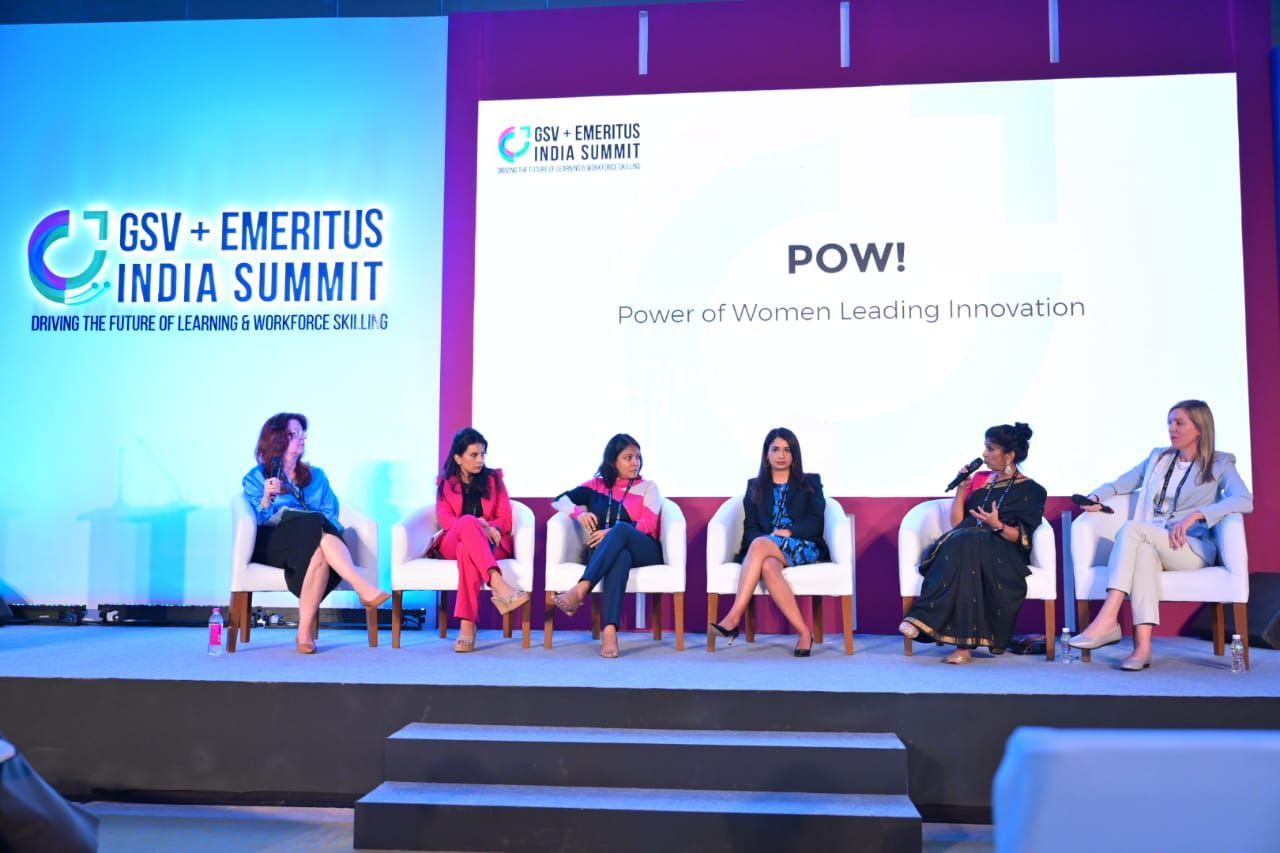 It is universally accepted that women do not always get a level playing field when impacting change. This is mainly because women do not get a fair share of representation in decision-making roles. At the GSV Emeritus India Summit 2023, both the problem and the solution of representation were discussed.
It is universally accepted that women do not always get a level playing field when impacting change. This is mainly because women do not get a fair share of representation in decision-making roles. At the GSV Emeritus India Summit 2023, both the problem and the solution of representation were discussed.
Vani Kola, Managing Director, Kalaari Capital, pitched the narrative on an unpleasant but realistic statistic. “About 70% of the women entrepreneurs surveyed said that when they pitched their idea, they were usually the only women in the room,” she said. Prerna Jhunjhunwala, Founder and CEO of Creative Galileo, added, “We have a lot of conversations about gender equality, but very few people want to make a tangible impact and walk the talk.
Ashley Chiampo, Chief Learning Officer, Emeritus, spoke about the situation currently as she explored how women were not making it to “the last mile”. She explained, “We have innovation across the education sector, and women engage in it. Somehow they’re not reaching the last mile. Female traits – empathy, collaboration, and emotional intelligence are great traits for entrepreneurs. But these traits also hold us back!”
Just like the problem, the solution to it is also layered. Some of the proposed solutions at the summit included making allies. Women needed allies and sponsors at work and at home too. Also, the possibility of women mentoring other women would ease the way to the top. Lastly, there needs to be some strategic thinking put into the organizations women work for and what they represent. For instance, at Emeritus, women hold 42% of the leadership roles. So, women must pick companies with a culture of fair gender ratios for executive roles. Skilling and learning can facilitate this by offering women the luxury of this choice.
And It’s a Wrap!
The summit reached a rather ‘befitting’ end with a fireside chat between Union Minister of Women and Child Development in India, Smriti Irani, and Ashwin Damera, CEO and Co-Founder of Emeritus.
 Alluding to the ‘Women in Leading Innovation’ segment of the summit, minister Irani added, “If you want to get your future right and be future-ready, ensure women are at the center of discourse and decisions.”
Alluding to the ‘Women in Leading Innovation’ segment of the summit, minister Irani added, “If you want to get your future right and be future-ready, ensure women are at the center of discourse and decisions.”
The honorable minister spoke of the synergy between “commerce and compassion”. She also made a critical comment about learning by saying, “Learning is a lifelong experience. You don’t need to learn only if you have come from hard circumstances. Those who are celebrated also need to update their skills.” She added that she was herself an Emeritus learner and had completed two programs from our platform.
What could be more poetic than a lifelong learner concluding ceremonies at an event celebrating learning and constant upskilling? Thus, Ashwin Damera expressed hope that the future of learning is bright as the people in the highest echelons of society believe in skilling.

